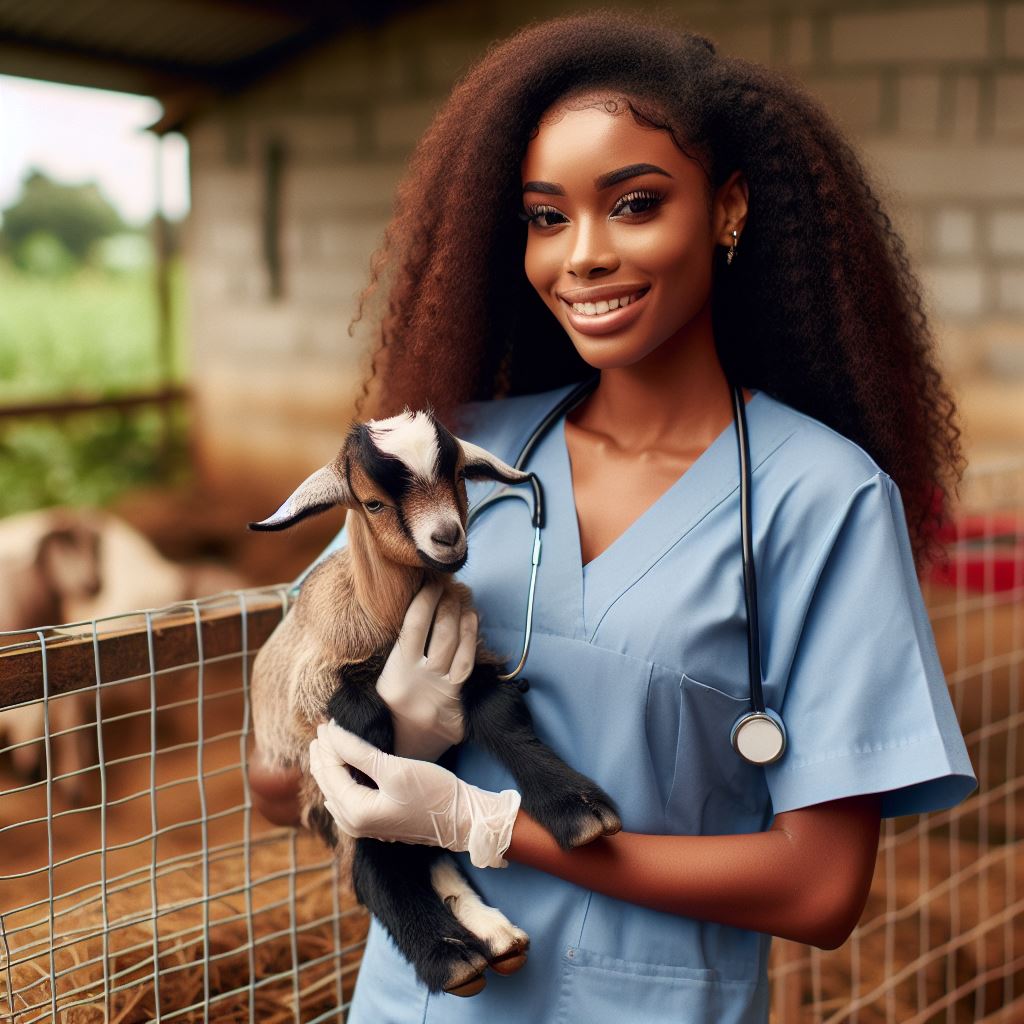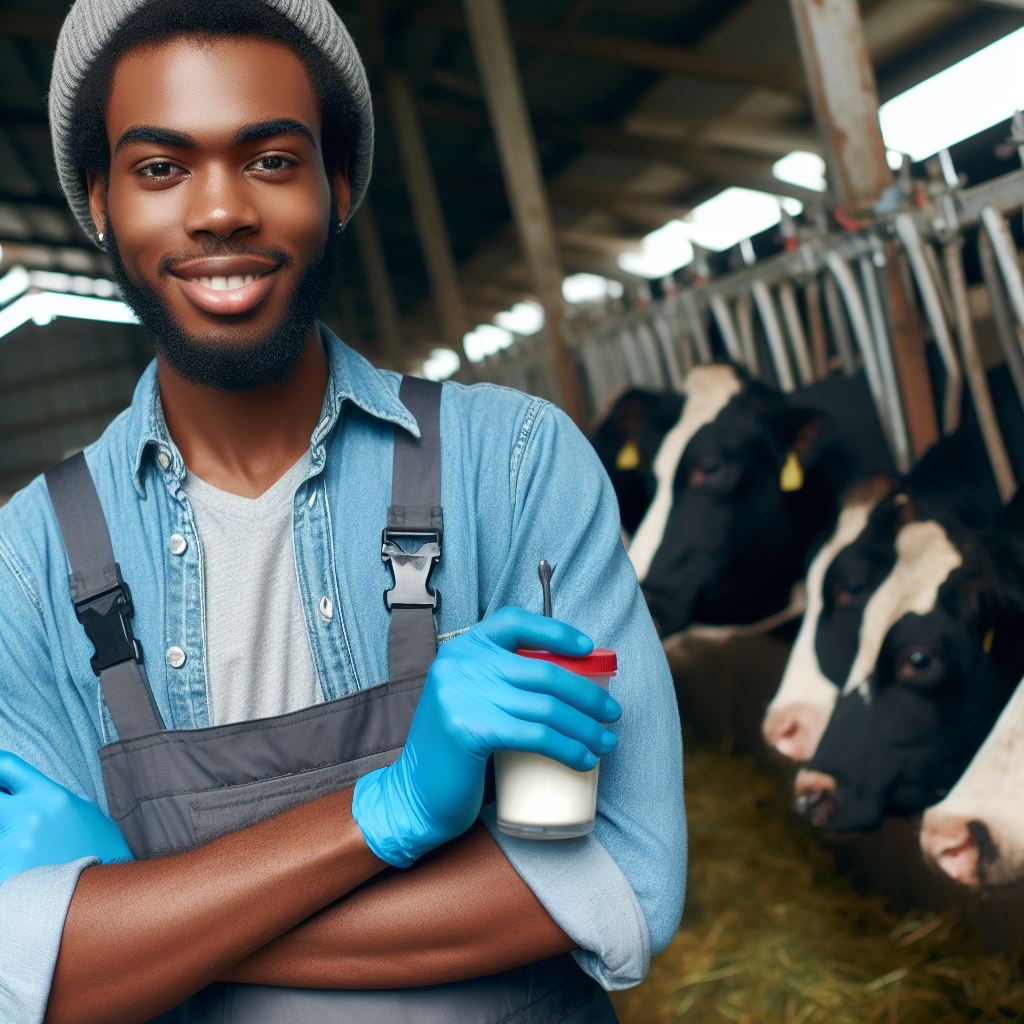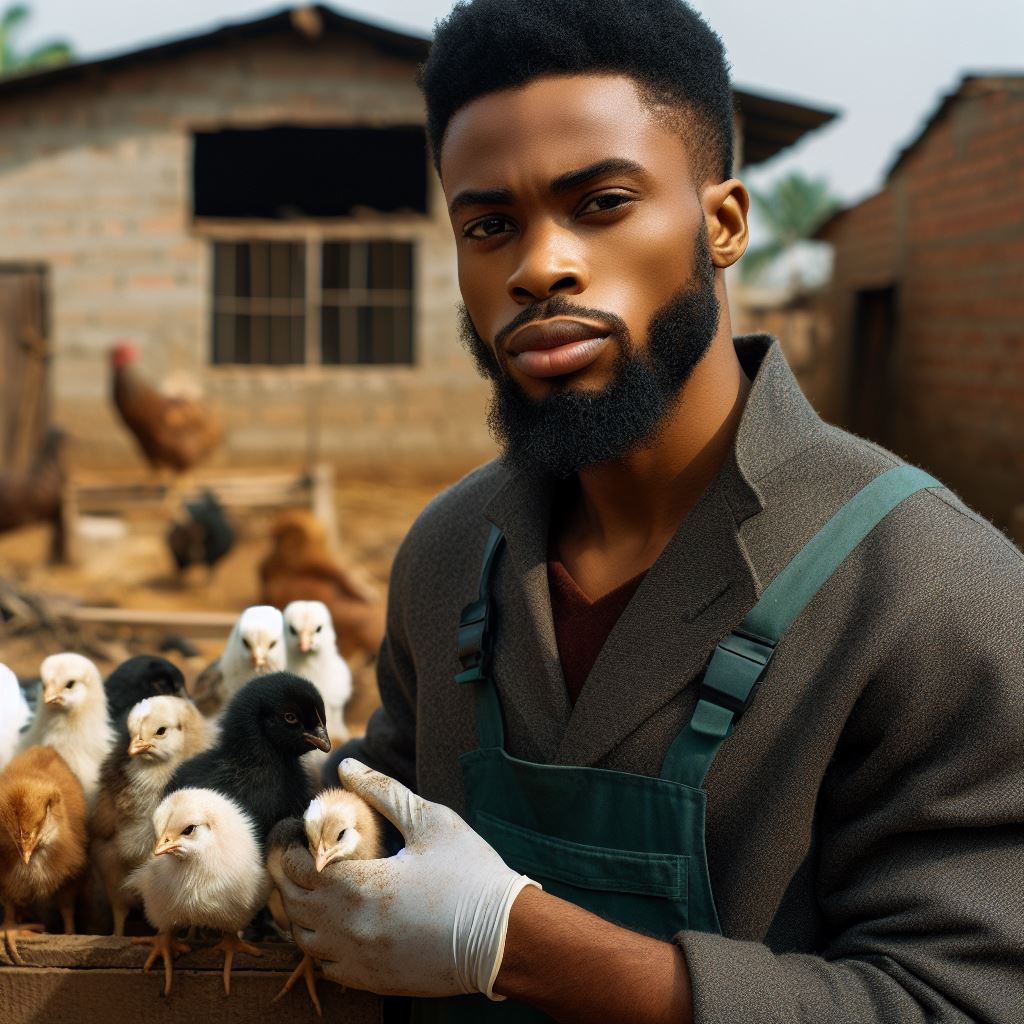Introduction
Animal Production Education Nigeria vs Global Standards: Animal production education plays a crucial role in the development of any country’s agricultural industry.
In Nigeria, where agriculture is a vital sector, understanding how its animal production education system compares to global standards is of great significance.
Nigeria, being a country with a significant percentage of its population engaged in agricultural activities, heavily relies on animal production as a source of food and income.
Therefore, it is essential to analyze and compare the standard of animal production education in Nigeria with global benchmarks to identify areas of improvement and potential growth.
By evaluating the gaps between Nigeria’s animal production education and global standards, policymakers, educators, and stakeholders can develop strategies to enhance curriculum, improve training methods, and invest in research and development.
This comparative analysis will enable Nigeria to align its animal production education with global practices, leading to increased productivity, improved livestock management, and enhanced market competitiveness.
Moreover, Nigeria can learn from other countries’ success stories in animal production education to address challenges such as disease control, implementing sustainable production methods, and adopting advanced technologies.
This knowledge transfer will not only benefit the agricultural sector but also propel Nigeria towards achieving food security and economic growth.
In the following sections, we will delve deeper into different aspects of animal production education in Nigeria, compare it with global standards, and explore potential solutions for bridging the gaps.
Join us as we embark on this journey of evaluating and elevating Nigeria’s animal production education to meet the demands of a globalized agricultural industry.
Overview of Animal Production Education in Nigeria
The animal production education system in Nigeria plays a crucial role in equipping individuals with the necessary knowledge and skills for livestock management and production.
It is important to understand the prevailing education system, courses, degrees, and institutions that offer animal production education in Nigeria, as it allows for a comparison with global standards and highlights any strengths or weaknesses in the Nigerian system.
Animal Production Education System in Nigeria
In Nigeria, animal production education is primarily offered as a specialized program within agricultural institutions and faculties.
These institutions provide comprehensive training in various aspects of animal production, including animal husbandry, feed management, disease control, and breeding techniques.
Available Courses, Degrees, and Academic Institutions
Several courses and degrees are available in the field of animal production education in Nigeria.
These include undergraduate programs such as Bachelor of Science (B.Sc.) in Animal Science, Animal Production, or Animal Husbandry.
At the postgraduate level, Master’s and Ph.D. degrees are offered in specialized areas such as Animal Breeding and Genetics, Nutrition, and Management.
Notable academic institutions offering animal production education in Nigeria include:
- University of Ibadan (UI)
- Federal University of Agriculture, Abeokuta (FUNAAB)
- University of Ilorin (UNILORIN)
- University of Nigeria, Nsukka (UNN)
- Ahmadu Bello University (ABU)
Strengths and Weaknesses of the Nigerian System
The Nigerian animal production education system has several notable strengths and weaknesses.
Strengths
- Integration of practical training: The Nigerian system emphasizes hands-on practical training, allowing students to gain real-world experience in livestock management.
- Diversity of courses: There is a wide range of courses available, allowing students to specialize in specific areas of interest within animal production.
- Strong research focus: Nigerian academic institutions actively conduct research in animal production, contributing to the advancement of knowledge in the field.
Weaknesses
- Inadequate infrastructure: Some institutions lack modern facilities and resources needed to provide holistic animal production education.
- Limited industry collaboration: There is a need for stronger collaboration between academic institutions and industry stakeholders to ensure curriculum relevance and enhance job prospects for graduates.
- Lack of standardized curriculum: There might be variations in the curriculum offered by different institutions, leading to inconsistencies in the quality of education received by students.
In short, the animal production education system in Nigeria offers a comprehensive curriculum and training to equip individuals with the necessary skills for livestock management.
While there are notable strengths, such as the emphasis on practical training and diverse course offerings, there are also weaknesses, including inadequate infrastructure and limited industry collaboration.
Continuous efforts should be made to address these weaknesses and align the Nigerian system with global standards, ensuring that graduates are well-prepared for the challenges and opportunities in the field of animal production.
Read: Admission Requirements for Animal Science in Nigerian Varsities
Comparison of Animal Production Education in Nigeria and Global Standards
Animal production education is essential for the development of the agricultural sector in any country.
In this blog section, we will compare the animal production education in Nigeria with global standards.
We will specifically focus on the curriculum, course structure, content, practical components, similarities, differences, and the emphasis on theoretical knowledge versus practical skills in both systems.
Compare the Curriculum of Animal Production Education in Nigeria with Global Standards
- In Nigeria, the curriculum of animal production education includes courses on animal nutrition, animal health, and breeding techniques.
- Global standards also emphasize these core areas, along with additional courses on animal welfare and ethical practices.
- Both Nigerian and global curricula strive to provide students with a solid foundation in the principles and practices of animal production.
Examine the Course Structure, Content, and Practical Components in Nigerian and Global Programs
- In Nigeria, animal production education is typically offered as a degree program in agricultural universities and colleges.
- Global programs may offer animal production as a specialized course within broader agricultural programs or as standalone programs.
- Course content in Nigerian programs includes lectures, laboratory work, and field visits.
- Similarly, global programs also include theoretical lectures, practical sessions, and hands-on experiences.
- Practical components in Nigerian programs focus on farm visits and internships to provide students with real-life exposure.
- Global programs also emphasize practical training through farm internships, industrial attachments, and research opportunities.
Similarities and Differences
- Both Nigerian and global animal production education programs cover similar core areas.
- However, global programs may have a broader scope and offer more specialized courses.
- programs often have stronger collaborations with industry, research institutions, and international organizations.
- Nigerian programs may face challenges in terms of funding, infrastructure, and industry partnerships.
The Emphasis on Theoretical Knowledge versus Practical Skills
- In Nigerian animal production education, there is an emphasis on theoretical knowledge to provide a strong foundation.
- Practical skills are also developed through laboratory work, field visits, and internships.
- Global programs strike a balance between theoretical knowledge and practical skills, focusing on real-world application.
Overall, while animal production education in Nigeria covers the core areas, there is a need to align the curriculum with global standards.
Collaboration with industry and research institutions can further enhance practical components and provide students with a holistic learning experience.
Emphasizing the development of practical skills alongside theoretical knowledge can better prepare graduates for the challenges and opportunities in the animal production industry.
Read: Studying Animal Nutrition & Health in Nigerian Universities
Quality of Animal Production Education in Nigeria
Assessing the Quality of Animal Production Education in Nigeria
Animal production education in Nigeria is in need of improvement in various aspects. While there has been some progress in recent years, challenges persist.
One major concern is the outdated infrastructure, inadequate facilities, and limited resources available in Nigerian institutions.
Insufficient funding has hindered the development of modern facilities and the acquisition of necessary resources for effective teaching and research.
Furthermore, the qualifications and expertise of faculty members in Nigerian animal production programs vary.
While some possess advanced degrees and significant industry experience, others may lack proper qualifications, impacting the quality of education.
Factors Affecting the Quality of Education in Animal Production
An important factor influencing the quality of animal production education in Nigeria is the availability of funding.
Insufficient financial support limits the institutions’ ability to hire competent faculty, upgrade facilities, and conduct valuable research.
Additionally, limited research opportunities hinder students’ exposure to practical, hands-on learning experiences.
Lack of collaborations with industry and research organizations further restrict the scope and relevance of education.
The inadequate integration of technology in the curriculum is another area of concern.
Transform Your Career with Expert Guidance
Get personalized mentorship consulting that’s tailored to your unique path. Our expert advice is actionable and exclusive.
Get StartedEmbracing modern teaching methods and utilizing technological tools can greatly enhance the learning experience and bridge the gap between academia and the industry.
Improving the Quality of Animal Production Education in Nigeria
To address these challenges and raise the quality of animal production education in Nigeria to global standards, several steps can be taken.
Firstly, there is a need for increased government funding to support infrastructure development, provide modern facilities, and acquire essential resources.
Proper allocation and management of these resources are equally vital.
Secondly, Nigerian institutions should prioritize faculty development by promoting advanced degrees and continuous training programs.
This ensures that faculty members possess the necessary qualifications and stay updated with industry advancements.
Furthermore, establishing strong partnerships with industries and research organizations can boost funding, offer research opportunities, and promote the practical application of knowledge.
These partnerships can also help in curriculum development to align education with industry needs.
Lastly, integrating technology into the curriculum and promoting e-learning platforms can facilitate remote access to educational resources and enhance the learning experience for students.
Basically, the quality of animal production education in Nigeria requires significant improvement.
It calls for increased funding, infrastructure development, faculty qualifications, research opportunities, and industry collaborations.
By addressing these factors, Nigeria can approach the global standards of animal production education.
Read: How Nigerian Universities are Advancing Animal Biotechnology

Challenges and Opportunities for Improvement
The challenges faced by animal production education in Nigeria
Animal production education in Nigeria is facing numerous challenges that hinder the quality of education provided.
These challenges include inadequate funding, an outdated curriculum, and a lack of practical training.
Issues such as inadequate funding, outdated curriculum, lack of practical training, etc.
Firstly, inadequate funding is a major challenge faced by animal production education in Nigeria.
Limited financial resources restrict the ability to provide necessary infrastructure, modern equipment, and qualified faculty members.
Without adequate funding, it becomes difficult to maintain a high standard of education and keep up with global advancements in the field.
Secondly, the outdated curriculum is another challenge that needs to be addressed. The current curriculum may not align with the rapidly evolving global standards in animal production.
This disconnect hampers students’ ability to acquire relevant knowledge and skills needed in the industry
There is a need for curriculum updates that reflect the latest developments and technological advancements in animal production.
Furthermore, the lack of practical training opportunities poses a significant challenge. Animal production is a hands-on field, and practical experience is crucial for students’ holistic understanding.
However, the limited availability of practical training platforms hinders students’ ability to apply theoretical knowledge and develop practical skills.
Incorporating more practical training in animal production education can help bridge this gap.
Potential opportunities and strategies for improving the quality of animal production education in Nigeria
Despite these challenges, there are several potential opportunities and strategies for improving the quality of animal production education in Nigeria.
One key opportunity lies in addressing the need for infrastructure development.
By investing in modern facilities, laboratories, and research centers, students can gain access to state-of-the-art resources that facilitate a more comprehensive learning experience.
Another important opportunity for improvement lies in curriculum updates.
Collaborating with industry experts and incorporating their insights can help ensure that the curriculum is more relevant to current agricultural practices and market demands.
This integration of real-life experiences can enhance students’ practical understanding and prepare them for the challenges of the industry.
Additionally, faculty training should be prioritized to improve the quality of animal production education.
Providing opportunities for faculty members to attend workshops, conferences, and seminars can keep them updated on the latest research findings and teaching methodologies.
Well-trained faculty members can effectively nurture students’ academic and professional growth.
The need for infrastructure development, curriculum updates, faculty training, industry collaborations, etc.
Furthermore, fostering collaborations between educational institutions and the animal production industry can lead to mutually beneficial outcomes.
Industry partnerships can provide students with hands-on experience, internships, and job placement opportunities.
Moreover, these collaborations can facilitate research and development activities that address industry challenges and promote innovation.
Essentially, enhancing animal production education in Nigeria requires addressing the challenges of inadequate funding, an outdated curriculum, and a lack of practical training.
By investing in infrastructure, updating the curriculum, providing faculty training, and fostering industry collaborations, the quality of animal production education can be significantly improved.
These strategies will ensure that Nigerian students receive a comprehensive and up-to-date education that meets global standards in animal production.
Read: Internships & Real-World Experience in Nigerian Animal Nutrition
Case Studies: Successful Animal Production Education Models from other Countries
Animal Production Education Nigeria vs Global Standards: In this section, we will provide case studies of countries with exemplary animal production education systems, exploring the best practices, innovations, and strategies implemented in these countries.
By analyzing these models, we aim to extract valuable lessons and insights that Nigeria can learn from.
Case Study 1: United States
The United States has one of the most advanced and well-established animal production education systems in the world.
The country offers a wide range of programs, from undergraduate to doctoral levels, that cover various aspects of animal production, including nutrition, genetics, and herd management.
One of the key strengths of the US system is its strong collaboration between academia and industry.
Universities work closely with agricultural organizations, research centers, and farming communities to ensure that the curriculum remains up-to-date and aligned with industry needs.
Additionally, the US system places great emphasis on practical training and experiential learning.
Students have access to state-of-the-art facilities, such as research farms and laboratories, where they can gain hands-on experience in handling and managing animals.
Case Study 2: Netherlands
The Netherlands is recognized for its innovative and sustainable approach to animal production education.
The country has developed a comprehensive curriculum that combines theoretical knowledge with practical applications, focusing on animal welfare, environmental impact, and technological advancements.
One of the noteworthy practices in the Dutch system is the integration of interdisciplinary studies.
Students learn not only about animal production but also about related fields such as ecology, economics, and ethics.
This holistic approach enables them to understand the interconnectedness of various factors affecting the industry.
Furthermore, the Netherlands emphasizes research and development in animal production.
Universities collaborate with industry partners and government agencies to conduct cutting-edge research, leading to the development of innovative solutions and practices that contribute to the sustainability of the sector.
Case Study 3: Brazil
Brazil has made significant strides in animal production education, particularly in the field of tropical animal science.
The country has developed specialized programs that focus on the unique challenges and opportunities associated with livestock production in tropical climates.
A major strength of the Brazilian system is its integration of practical training with fieldwork.
Students have the opportunity to work directly with farmers and rural communities, gaining insights into the realities of animal production in different regions of the country.
Moreover, Brazil has established strong extension services that provide continuous support to farmers.
These services facilitate the transfer of knowledge and technology from academia to practice, ensuring that the latest advancements in animal production reach the farming community.
Delve into the Subject: Educational Programs for Nigerian Horticulture
Lessons and Insights for Nigeria
Animal Production Education Nigeria vs Global Standards: By studying these successful animal production education models from the United States, Netherlands, and Brazil, Nigeria can gain valuable insights to enhance its own system. Here are some key lessons:
- Develop a strong collaboration between academia and industry to ensure relevance and responsiveness to industry needs.
- Emphasize practical training and provide students with opportunities for hands-on experience.
- Integrate interdisciplinary studies to foster a holistic understanding of animal production.
- Promote research and development in animal production to drive innovation and sustainability.
- Establish strong extension services to facilitate knowledge transfer and support farmers in adopting new practices.
By adopting these best practices and strategies, Nigeria can strengthen its animal production education system and contribute to the development of a thriving and sustainable livestock industry.
Recommendations for Enhancing Animal Production Education in Nigeria
- Enhance practical training programs to provide hands-on experience for students.
- Invest in modern infrastructure and facilities to improve the quality of education.
- Develop and implement a standardized curriculum that aligns with global standards.
- Strengthen research and development initiatives to promote innovation in the field.
- Establish collaborations with international universities and industry professionals for knowledge exchange.
- Provide scholarships and incentives to attract and retain talented students in animal production studies.
- Encourage the inclusion of emerging technologies in the curriculum, such as precision farming and biotechnology.
- Promote entrepreneurship in animal production education by offering courses on business management and marketing.
- Conduct regular industry-academia dialogues to bridge the gap between education and industry requirements.
- Support faculty development programs to enhance teaching methodologies and research capabilities.
Key recommendations based on the comparison and analysis
Animal Production Education Nigeria vs Global Standards: Based on the comparison between Nigeria’s animal production education and global standards, it is evident that there is a need for significant improvements.
Key recommendations include enhancing practical training, investing in modern infrastructure, implementing a standardized curriculum, and strengthening research initiatives.
Collaborations with international universities and industry professionals, scholarships for talented students, and the inclusion of emerging technologies are also suggested.
Suggestions for policy changes, investments, partnerships, and collaborations to enhance animal production education in Nigeria
Animal Production Education Nigeria vs Global Standards: In order to enhance animal production education in Nigeria, various policy changes, investments, partnerships, and collaborations are essential.
The government should allocate sufficient funds to upgrade infrastructure and facilities, revise the curriculum to meet global standards, and promote research and development.
Additionally, partnerships with international universities and industry professionals can bring in expertise and resources.
Collaborations with private sector organizations and NGOs can also help in providing internships, workshops, and mentorship opportunities to students.
The importance of aligning with global standards and industry demands
Animal Production Education Nigeria vs Global Standards: Aligning animal production education in Nigeria with global standards and industry demands is crucial for several reasons.
Firstly, it ensures that Nigerian graduates are globally competitive and can meet international job requirements.
Secondly, it helps in developing a skilled workforce that can contribute to the growth of the animal production sector in Nigeria.
Additionally, aligning with global standards enhances the exchange of knowledge, technologies, and best practices, resulting in improved productivity and sustainability in animal production.
Conclusion
Animal Production Education Nigeria vs Global Standards: In this blog post, we examined the differences between animal production education in Nigeria and global standards.
We highlighted the challenges faced by Nigeria in this field and the importance of improving animal production education.
Throughout the post, we discussed how Nigeria lags behind in terms of curriculum, resources, and practical training opportunities.
Limited access to modern techniques and technologies hinders the development of the agricultural sector.
Improving animal production education in Nigeria is crucial for the country’s agricultural sector.
By bridging the gap between Nigerian and global standards, Nigeria can enhance its productivity, increase food security, and contribute to economic growth.
To achieve this, further research, discussions, and actions are needed. Stakeholders, including government agencies, educational institutions, and industry experts, should collaborate to develop comprehensive training programs.
Investment in state-of-the-art facilities, equipment, and research projects is also essential.
By strengthening animal production education, Nigeria can train a skilled workforce capable of adopting modern practices.
This will lead to sustainable agricultural practices, improved livestock production, and ultimately, better livelihoods for farmers.
In the end, improving animal production education is not only necessary for Nigeria’s agricultural development but also for its overall economic growth.
Let us continue to explore ways to bridge the gap between Nigerian and global standards in animal production education, holding discussions, and taking action for a brighter future.




